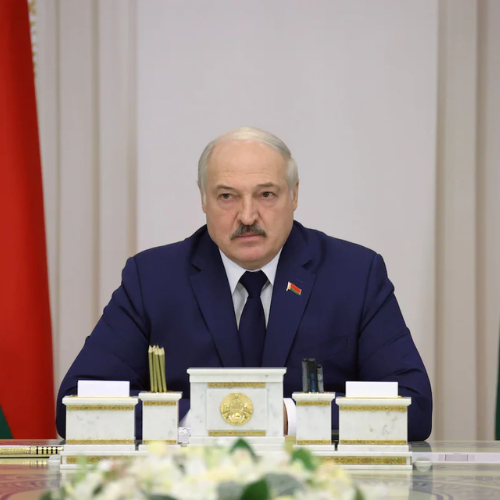The European Union has strongly rejected the recent election in Belarus, calling it a “sham” and accusing the government of making the voting process unfair and unjust. The vote, which took place recently, was seen by many as a set-up that would allow the current president, who has been in power for over 30 years, to stay in office for another term. The EU leaders have made it clear that they do not recognize the election results and are considering taking further steps, including imposing new sanctions on the Belarusian government.
A Rigged Election Process
The European Union’s reaction to the Belarusian election was swift and harsh. According to the EU foreign policy chief and enlargement commissioner, the election was neither free nor fair. They criticized the Belarusian government for creating an environment where people could not freely choose their leaders, stating that the government used its power to make sure the outcome of the election would favor the president. These leaders also pointed out that the election was held in a climate of severe repression, where people were not allowed to express their opinions without fear of punishment.
They also noted that more than 1,000 political prisoners are currently being held in Belarus. These prisoners include opposition leaders, activists, and even an employee from the EU delegation in the country’s capital. These people have been arrested and locked up for standing up against the government. The EU leaders have urged the Belarusian government to release these prisoners immediately, calling their detention a violation of basic human rights.
Trump Demands End to Ukraine War, Vows Severe Tariffs and Sanctions on Russia
Restrictions on Media and Political Freedom
The EU further criticized the Belarusian government for restricting political participation and limiting access to independent media. In Belarus, it is difficult for people to get information that is not controlled by the government. Media outlets that do not support the president’s views are shut down, and anyone who speaks out against the government is often punished. This lack of free speech makes it impossible for the people of Belarus to make informed choices during elections.
The EU also expressed concern about the way the Belarusian government treats its people. For many years, the government has been cracking down on anyone who opposes it, including taking action against peaceful protests and arresting thousands of people. This oppressive environment means that the elections held under such conditions cannot be seen as fair, as the people do not have the freedom to vote without fear.
The Role of Belarus in the Ukraine Conflict
In addition to criticizing the election, the EU also condemned the Belarusian government for its role in supporting Russia’s war against Ukraine. The Belarusian president has been a close ally of Russian President Vladimir Putin, allowing Russian troops to use Belarus as a base to launch attacks on Ukraine. The EU believes that this cooperation between the two countries is a serious threat to regional security and stability.
Belgian King to Step In if Hungary Prevents EU Sanctions on Russia
The EU leaders also expressed their concern over the “hybrid attacks” by the Belarusian government, meaning actions that harm its neighboring countries without directly using military force. These include cyberattacks, misinformation campaigns, and other ways of destabilizing the region. The EU made it clear that these actions would not be tolerated and that the Belarusian government would face consequences for its involvement in these activities.
New Sanctions on the Horizon?
The European Union has already imposed several rounds of sanctions on Belarus in response to the government’s actions. These sanctions include restrictions on trade, travel bans, and freezing the assets of government officials. The EU has now warned that new sanctions could be coming soon as a response to the unfair election and Belarus’s continued involvement in the war in Ukraine. However, EU leaders did not provide any specific details about what the new sanctions would be or when they would be introduced.
The EU’s foreign ministers are also planning to meet with Belarusian opposition leader Sviatlana Tsikhanouskaya. Tsikhanouskaya, who has been a vocal critic of the government, fled Belarus after facing persecution and has been actively speaking out against the president’s rule. The meeting, which is scheduled to take place in Brussels, will be informal, and the EU is expected to show its support for the opposition leader during this private gathering.
While the Belarusian government remains firm in its position, the European Union is continuing to stand by its call for change in the country. The EU’s commitment to holding the Belarusian leadership accountable for its actions remains strong.


